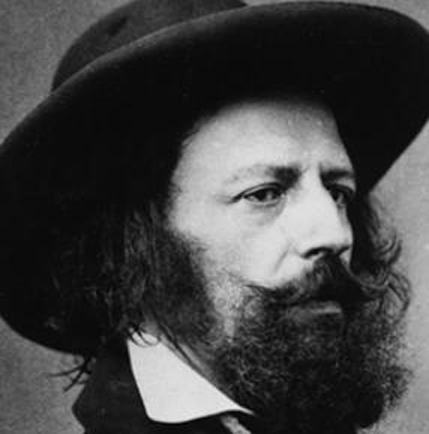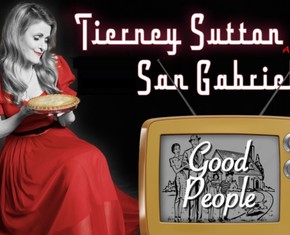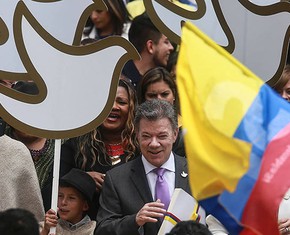The views expressed in our content reflect individual perspectives and do not represent the authoritative views of the Baha'i Faith.
“The stage will be the pulpit of the future,” Abdu’l-Baha reportedly said. What did he mean?

Alfred Lord Tennyson
On December 22, 1912, Abdu’l-Baha attended the performance of a play by Alice Mary Buckton (1867-1944), a British Baha’i poet and playwright who had lifelong mystical interests. The author Lil Osborn called the published poet and playwright Buckton a “Baha’i mystic.” Buckton, a friend of the poet Alfred Lord Tennyson, was well-known in England for her work in education and in settlement houses for the poor.
Alice first learned of the Baha’i movement (as it was called then) from Wellesley Tudor-Pole (1884-1968), a spiritualist and close friend of the Faith, probably shortly after his return from a visit to Istanbul in 1908. Accompanied by her friend and companion, Annet Hamminck Schepel, who was also accounted a Baha’i at that time, Alice went on pilgrimage to Akka, where she first met Abdu’l-Baha in early 1910, attested by an article published in Star of the West.
She then visited the United States in 1911, reported in the March 1911 issue of Star of the West. The article said that Alice Mary Buckton presented “the Baha’i teachings … to hundreds of eager listeners.” The purpose of her visit was to oversee a Boston staging of her play Eager Heart.
Alice returned to London and participated in the First Universal Races Congress, held at the University of London from July 26 to 29, as later recalled by Louise Waite, an American Baha’i. When Abdu’l-Baha visited London in 1911, she spent much time with him. She remained closely associated with the Baha’is upon his return to the Holy Land, and his subsequent trip to North America.
On December 22, 1912, having disembarked in Liverpool a few days earlier, Abdu’l-Baha attended a performance of Eager Heart at Church House, Westminster, before an audience of 1200 people. It was billed a “mystery play” and depicted imagined events in the life of Jesus.
The play on the whole was very effective, Miss Mary Blomfield, who took the part of Eager Heart, interpreted the character with a delicacy and artistic appreciation that was wonderful. There were such longing, such unutterable desire in every movement and word for the King. When Mary and Joseph came in with the child in her arms, Abdu’l-Baha was so deeply touched that he wept. – reported in Star of the West, Volume 3, p. 7.
Lady Blomfield reported:
This was a memorable occasion, as it was the first time [Abdu’l-Baha] had ever witnessed a dramatic performance. The Master wept during the scene in which the Holy Child and His parents, overcome with fatigue, and suffering from hunger, were met by the hesitation of Eager Heart [one of the dramatic characters] to admit them to the haven of rest which she had prepared, she, of course, failing to recognize the sacred visitors. The Master afterwards joined the group of players. It was an arresting scene. In the Eastern setting [Abdu’l-Baha], in His Eastern robes, speaking to them in the beautiful Eastern words of the Divine significance of the events which had been portrayed. – Lady Blomfield, The Chosen Highway, pp. 154-155.
Either on this occasion or some other Abdu’l-Baha is reported to have said, regarding the depiction of religious themes on the stage: “The stage will be the pulpit of the future” – Loulie Mathews, The Magazine of the Children of the Kingdom, Volume 4, Number 3, June 1923, p. 69.
In London, in response to an actor who mentioned the drama and its influence, Abdu’l-Baha also said:
“The drama is of the utmost importance. It has been a great educational power in the past; it will be so again.” He described how as a young boy he witnessed the Mystery Play of Ali’s Betrayal and Passion, and how it affected him so deeply that he wept and could not sleep for many nights. – Abdu’l-Baha, Abdu’l-Baha in London, p. 93.
















Comments
Sign in or create an account
Continue with Googleor